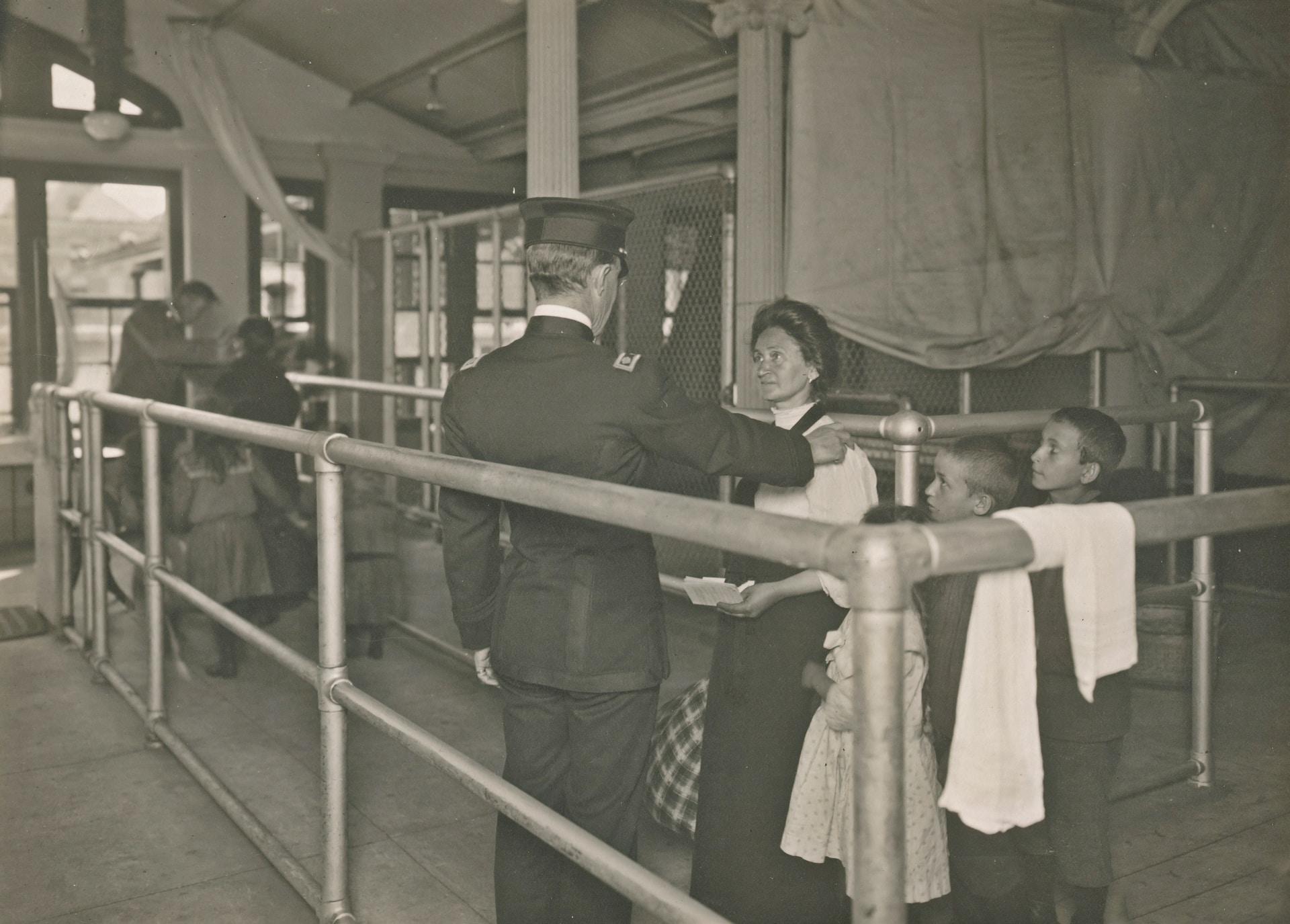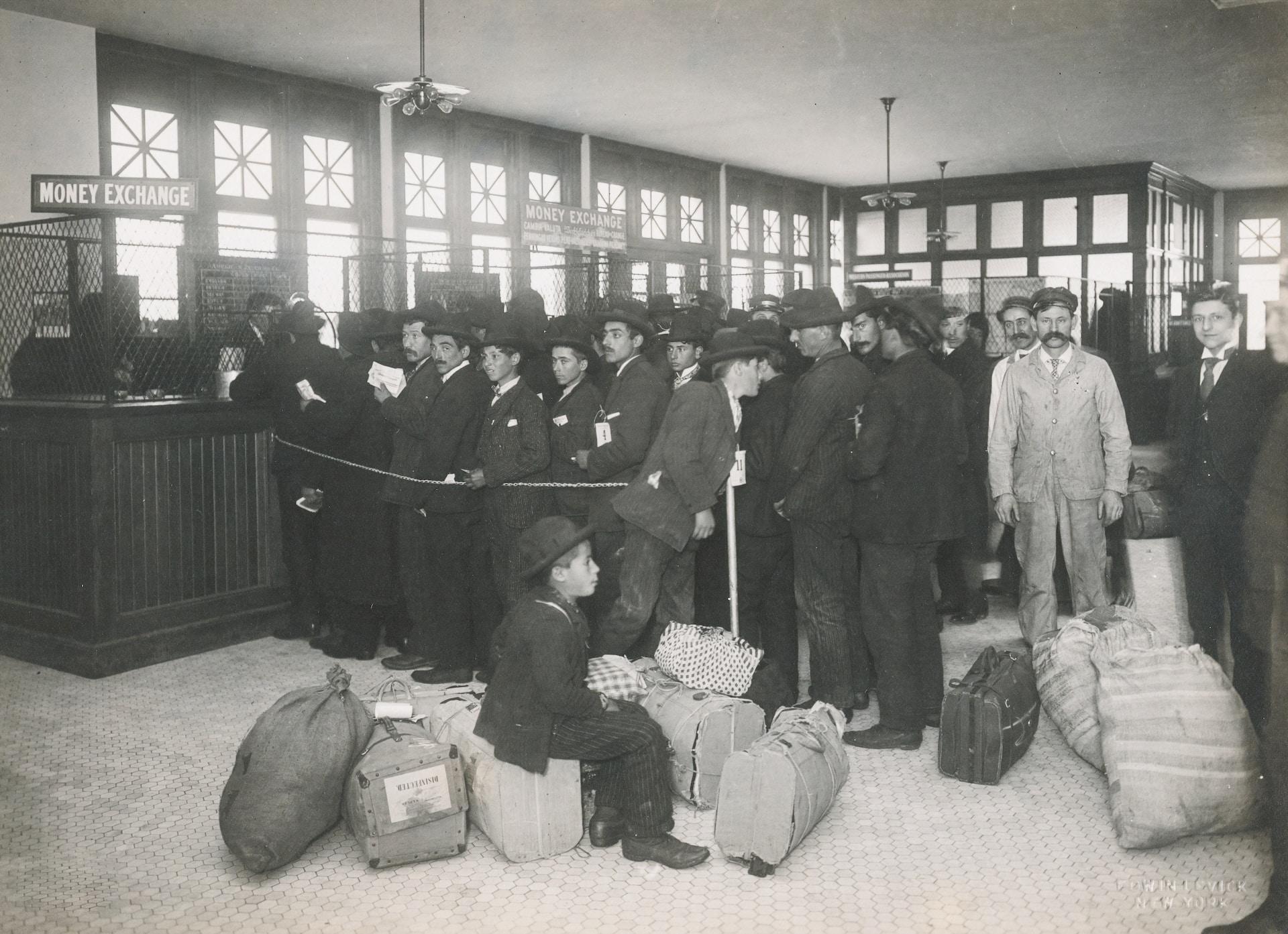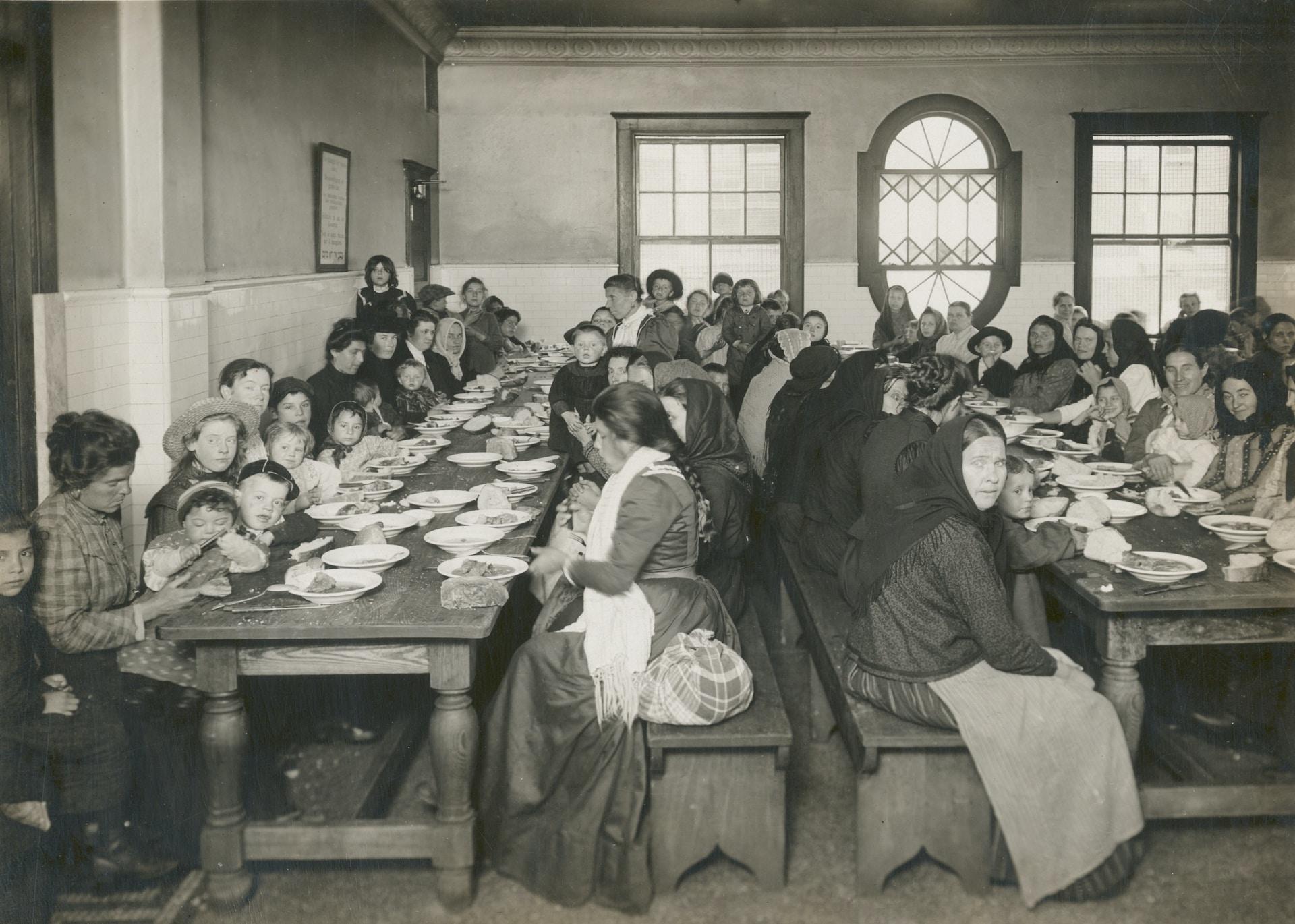Immigration Records: 5 Ways to Get Them for Free
In this article we are going to take a closer look at researching our ancestors from other countries and try to find out the ways in which we can get immigration records for free. If you have immigrant ancestors and want to track down their records read on.
Why Is Tracing Immigrant Ancestors Important?
One of the biggest parts of researching your family history is the ability to understand the people you come from. These can be individuals from all walks of life and from countries far away from where you live now.
Many people in the United States Identify with their family's ancestral heritage to some degree with descriptors such as Irish-American, Italian-American, Polish-American among many others being very commonplace. To many these connections are very important especially when their recent ancestors may be the first to arrive in the country.

Some families go back many generations even as far as some of the earliest colonies established in America hundreds of years ago. Most Americans today will likely discover immigrant ancestors somewhere along the line.
If we do not research those immigrant ancestors then we reach a dead end. Although it can be challenging to track that ancestor back to their original homeland it is something that can be tremendously rewarding. To understand ourselves we should embrace where we come from and that also means ancestrally speaking.
How Do You Research Immigrant Ancestors?
This is such a potentially broad subject of research. Some will be easy to trace and research while others will be a lot more challenging. In this section we will look more closely at how to go about researching your immigrant ancestors.
Establish a Timeline
This is true of all ancestors, not just those who may have immigrated to where you now reside. If you can establish a timeline of the events of their lives as determined during your research this can help you narrow down when other unknown events may have taken place.
As an example, if the ancestor was born outside the U.S. in 1852 but appears in a U.S. Federal census in 1880 then at some point during those 28 years they traveled to America. If in that census they have children born in your ancestor's home country perhaps around 1870, then you can infer that your ancestor did not move to the U.S. until between 1870 – 1880.

Essentially you scrutinize events in their lives that happened in the U.S. and those that happened abroad to try and narrow down when they may have made the move.
Try and Locate Old Family Records
You may be surprised at the items that families will keep for generations. You may have an aunt or uncle who collects the family records and has boxes full of old documents. Ask to be able to search through these papers and you may come across documents regarding your ancestor's immigration. You may even find a boat ticket, old passports, bibles or heirlooms from their country of origin.
The U.S. Federal Census Is a Great Resource
Every decade in the United States a population census is taken on a federal level and this has been the case since 1790. In the first few censuses information included was limited but from the mid 1800s location of birth became a question on this record.
Reporting the place of a person's birth on the census has become a good tool for genealogists looking to find their immigrant ancestors and their respective countries of origin. In later censuses of the late 1800s and early 1900s you started to get the place of parents' birth for individuals as well as their own place of birth. You might also find the year of arrival in the country as well as immigration status.
Now it is important to note that the information reported to the census taker may not be wholly accurate. Some immigrants may have lied about their home country for political reasons and may even have lied about their immigration status as well. It is not a perfect document but it can certainly render clues.
Important immigration abbreviations to look out for:
- AL = Alien: A person who has not yet begun the process of naturalization in the U.S.
- PA = Papers Filed: A person who has filed the paperwork in order to apply for citizenship
- NA = Naturalized: A person who has applied and been successful in their citizenship application
Search Passenger Lists
Once you have an idea of when your ancestors may have arrived you need to next try and locate a record of their arrival. Millions of immigrants came through Ellis Island and other such U.S. ports of arrival and records of manifests for those ships are available online.

A great resource for finding ship manifests is steve.morse.org. It is a website with a whole host of free records that you can search and has a very comprehensive search engine to help you try and locate your ancestors' arrival into the U.S.
Sites like Ancestry.com and FamilySearch also have extensive collections of immigration arrival documents. You might find a scanned copy of the manifest that mentions your ancestor and names the ship they arrived on.
Naturalization Documents
The major genealogy websites will often have collections of immigration documents which may include images of the papers your ancestors filed to gain their naturalization. It may include information about them that you did not already know including the town in which they were born, who their parents were and other interesting biographical information.
Finding out which town in Italy an ancestor was born in for example, may help you find a birth certificate for them. These birth certificates can be important for those seeking to claim dual citizenship through an Italian born grandparent.
It should be noted that even if your grandparent was born in the United States, if their Italian born father was not yet naturalized at their birth you and your parents would be eligible for Italian citizenship. This is the case with many other countries around the world which is something to consider.
Some Countries Will Be Hard to Trace Back To
This is important for us to understand, as genealogists we are often constrained by availability of records. The United States and the UK have extensive records dating back in some cases hundreds of years. Some Asian countries can go back much further than that because of their strong respect for family and heritage in their culture.
There are however countries that have experienced wars and political strife over the past few centuries which have all but obliterated their historic family records. Depending on where your ancestor comes from you may be able to trace something of their life in their home country or perhaps be completely stalled.
Free Ways get Immigration Records
There are many different types of immigration records from naturalization papers to ship manifests which can teach us about our ancestors' immigrant experience.
1. Stevemorse.org
Stevemorse.org is the creation of Stephen P. Morse who is probably best known as the architect of the Intel 8086 chip. In Stevenmorse.org, Morse has created an impressive database of genealogical tools that has quickly become very popular.

Completely free to use, you can search immigration information from throughout the United States. You can also use this site to locate census records from the US, Canada and the UK as well as a host of other vital records. It is a truly astonishing site that is admittedly sometimes a little difficult to navigate.
Those with perseverance will likely find that a little trial and error will be greatly rewarding when it comes to this website. In many ways, it’s a one-stop shop of records and important genealogy tips.
2. Ellis Island and Castle Garden
A lot of early immigrants came through New York first through Castle Garden and then later Ellis Island. There are two websites, castlegarden.org and statueofliberty.org, that are dedicated to the history of these immigrants.
Each site holds a vast database of incoming immigration records that can be searched for free. This is a great way to try and discover when your ancestors arrived in the new world. Using information such as full name, approximate date of birth, nationality, and ship name you may be able to locate your ancestor on a ship's manifest and maybe find out more about them.
3. Familysearch.org
This website is completely free to use and is the most similar that you will find to any of the main paid sites such as Ancestry or MyHeritage. It is a non-profit organization that was created by the Latter Day Saints Church.
You can build your tree through this site and have access to a wide variety of records from their library. It may not be as user friendly and slick as the big sites but its resources are extensive. In fact, a lot of the content found on Ancestry, findmypast and MyHeritage originates from a deal they made with familysearch.org.
It has collections of all manner of genealogical records including immigration records. It is an extensive database which offers immigration records from around the world completely free. You will have to search for the right records however that would cover your known ancestors.
The search functions are similar to sites like Ancestry but you do have to sometimes browse through images of records in search of the one you are seeking. If you do not mind a little extra leg work this is likely the best free site for genealogy research.
4. US National Archives
This is a wonderful site that has a wide array of resources to assist in family history research. They offer a select collection of records including census, military, immigration and legal.
If they do not have access to certain records they will often be able to direct you to a site that may have them. Although it’s not the easiest to navigate it is certainly worth a visit to see what they may have that can help you.

If they do not have what you need digitized the archives may be able to supply you with microfilm copies of the records. These do cost money to order, however, and you will need access to the right equipment to be able to view the microfilm.
5. U.S. Citizenship and Immigration Services
The Freedom of Information Act (FOIA)authorizes U.S. Citizenship and Immigration Services to release records from the following collections:
- Naturalization Certificate Files (C-Files), September 27, 1906 to March 31, 1956
- Alien Registration Forms (Form AR-2), August 1940 to March 1944
- Visa Files, July 1, 1924 to March 31, 1944
- Registry Files, March 1929 to March 31, 1944
- A-Files, April 1, 1944 to May 1, 1951
In order to make a request for an individual's immigration records born less than 100 years from the current date you will first need to supply proof that the person is deceased or have them make the request. In order to get the correct records you will need the following information regarding the individual:
- Their file number
- Full name
- Date of birth (actual or estimated)
- Country of birth
This is by far the best way to get immigration records for an ancestor as you can order hard copies of the documents which may be required for potential citizenship claims. That’s said we should make it clear that this option is not free but still worth looking into. Depending on the records you order you will pay at least $25 but if this is for official purposes it is worth it.
Final Thoughts
There are plenty of sites on which you can locate collections of immigration documents for free to allow you to put together your ancestor's journey to the country you now reside. If it is just for family research purposes then the free options are great. However some people may need records for official purposes in which case you will need to pay for official copies. You would do this through U.S. Citizenship and Immigration Services.
Link To or Reference This Page
We spent a lot of time downloading, cleaning, merging, and formatting the data that is shown on the site.
If you found the data or information on this page useful in your research, please use the tool below to properly cite or reference Name Census as the source. We appreciate your support!
-
<a href="https://namecensus.com/blog/immigration-records-5-ways-to-get-them-for-free/">Immigration Records: 5 Ways to Get Them for Free</a>
-
"Immigration Records: 5 Ways to Get Them for Free". NameCensus.com. Accessed on May 8, 2024. https://namecensus.com/blog/immigration-records-5-ways-to-get-them-for-free/.
-
"Immigration Records: 5 Ways to Get Them for Free". NameCensus.com, https://namecensus.com/blog/immigration-records-5-ways-to-get-them-for-free/. Accessed 8 May, 2024
-
Immigration Records: 5 Ways to Get Them for Free. NameCensus.com. Retrieved from https://namecensus.com/blog/immigration-records-5-ways-to-get-them-for-free/.
